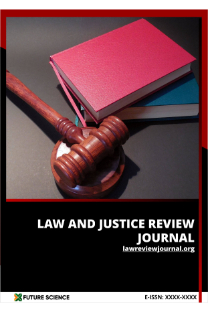Uluslararası Hukuk Kapsamında İsrail Yüksek Mahkemesi’nin İşgal ile İlgili Kararlarının Eleştirisi
Yaklaşık elli yıllık bir işgal olması nedeniyle İsrail’in Filistindeki işgali benzersiz özelliklere sahiptir. İsrail Yüksek Mahkemesi, İsrail’in Batı Şeria’yı işgal ettiği 1967 savaşından bu yana işgalin birçok yönünü ele alan farklı kararlar vermiştir. Bu kararlar, işgal altında yaşayan binlerce Filistinlinin haklarının ihlalinin meşrulaştırılması için kullanıldığı ve uluslararası hukuka uygun yorumlarla bağdaşmadığı gerekçesiyle eleştirilirken, Mahkeme, bölgedeki mevcut devlet politikası doğrultusunda tartışmalı kararlar vermeye devam etmiştir. Birçok tartışmalı kararda Mahkeme, bölgedeki işgal süresinin uzunluğu nedeniyle hukukun bölgedeki gerçekliğe uyum göstermesi gerektiğini savundu. Bu makalede Mahkeme’nin yaklaşımı çeşitli açılardan eleştirilecektir. Bu yapılırken, İsrail işgalinin karakteristik özelliklerinin, uzun süreli işgal, korunan kişiler ve askeri gereklilikler gibi tartışmalı konulara ilişkin mahkeme kararlarını nasıl etkilediği eleştirel olarak değerlendirilmeye çalışılacaktır.
THE CRITIQUE OF ISRAEL SUPREME COURT DECISIONS ON OCCUPATION UNDER THE INTERNATIONAL LAW
The Israeli occupation has a uniquefeature due to its length of almost fiftyyears. The Israel Supreme Court hasmade unprecedented decisions thataddress many aspects of occupationsince the 1967 war when Israeloccupied the West Bank. While thesedecisions have been criticised due to thelegitimization of violations of the rightsof thousands of Palestinians living underoccupation and being incompatiblewith the interpretation of internationallaw the Court was continuing to makecontroversial decisions in line withthe state policy in the region. In manycontroversial decisions, the Court arguedthat due to the length of the occupation,the law should be adjusted to the realityin the territory. In this article, the Court’sapproach will be criticised from variousperspectives. In doing so, it will be triedto critically assess how the specific andcharacteristic features of the Israelioccupation affects the decisions oncontroversial issues such as long-termoccupation, protected person, andmilitary needs.
___
- Shamgar M, ‘The Observance of International Law in the Administered Territories’ (1971) 1, Israel Yearbook on Human Rights
- Sassoli M, ‘Article 43 of The Hague Regulations And Peace Operations In The Twenty-First Century’ (2004) International Humanitarian Law Research Initiative
- Roberts A, ‘Prolonged Military Occupation: The Israeli-Occupied Territories since 1967’ (1990) 84, The American Journal of International Law
- Kretzmer D, ‘The Law of Belligerent Occupation in the Supreme Court of Israel’ (2012) 94, International Review of the Red Cross
- Harpaz G, Shany Y, Benvenisti E, Cohen A, Ronen Y, Medina B, and Ben-Naftali O, Expert Legal Opinion, HCJ 2164/09 Yesh Din-Volunteers for Human Rights v Commander of IDF Forces in West Bank (2011)
- Harpaz G. and Shany Y, ‘The Israeli Supreme Court And The Incremental Expansion Of The Scope Of Discretion Under Belligerent Occupation Law’ (2010) 43, Israel Law Review
- Gross A, ‘Human Proportions: Are Human Rights the Emperor New Clothes of the International Law of Occupation?’ (2007) 18, The European Journal of International Law
- Goodman D, ‘The Need for Fundamental Change in the Law of Belligerent Occupation’ (1985) 37, Stanford Law Review
- Butovsky Y, ‘Law of Belligerent Occupation: Israeli Practice and Judicial Decisions Affecting the West Bank’ (1983) 21, Canadian Yearbook of International Law
- Ben-Naftali O. and Shany Y, ‘Living in Denial: The Application of Human Rights in the Occupied Territories’ (2003 – 2004) 37, Israel Law Review
- Articles Barak-Erez D, ‘Israel: The security barrier-between international law, constitutional law, and domestic judicial review’ (2006) 4, International Journal of Constitutional Law
- Pazarcı H, Uluslararası Hukuk (8. Bası, Turhan Kitabevi Yayınları, Ankara 2009)
- Kretzmer D, The Occupation of Justice: The Supreme Court of Israel and the Occupied Territories (State University New York Press, New York 2002)
- Dinstein Y, The Law of Belligerent Occupation (Cambridge University Press 2009)
- Cassese A, The Human Dimension Of International Law (Oxford University Press 2008)
- Benvenisti E, The International Law of Occupation (Princeton University Press 1993)
- Books Arai-Takahashi Y, The Law of Occupation: Continuity and Change of International Humanitarian Law, and Its Interaction With International Human Rights Law (Martinus Nijhoff Publishers, Leiden 2009)
- International Military Tribunal (Nuremberg), (1 October 1946)
- HCJ 393/82, Jam’iyat Iskan v. IDF Commander in Judea and Samaria (28 December 1983)
- HCJ 2164/09, Yesh Din v. Commander of IDF Forces in Judea and Samaria (26 December 2011)
- HCJ 2150/07, Abu Safiya v. The Minister of Defense (29 December 2009)
- HCJ 4481/91, Bargil v. Government of Israel (25 August 1993)
- HCJ 390/79, Duweikat v. Government Of Israel (22 October 1979)
- HCJ 3239/02, Marab v. The IDF Commander in Judea and Samaria (05 February 2003)
- HCJ 769/02, Public Committee against Torture in Israel v. Government of Israel (13 December 2006)
- HCJ 2690/09, Yesh Din v. Commander of IDF Forces in the Judea and Samaria (28 March 2010)
- HCJ 2056/04, Beit Sourik Village Council v. The Government of Israel (30 June 2004)
- HCJ 1661/05, Gaza Beach Regional Council v. Knesset of Israel (21 June 2005)
- HCJ 256/72, Electricity Company for Jerusalem District v. Minister of Defence (1972)
- HCJ 337/71, Christian Society for the Holy Places v. Minister of Defense (1972)
- Advisory Opinion: Legal Consequences of the Construction of a Wall in the Occupied Palestinian Territory, 09 July 2004, ICJ reports
- ISSN: 1309-9485
- Yayın Aralığı: Yılda 2 Sayı
- Başlangıç: 2010
- Yayıncı: Türkiye Adalet Akademisi
Sayıdaki Diğer Makaleler
Sular İçin Hayati Koruma: Birleşik Devletler Temiz Su Yasası Vatandaş Davaları Hükmü
GLOBAL LEGAL PLURALISM: A NEW CHALLENGE TO INTERNATIONAL LAW?
ORGANIZATIONAL STRUCTURE AND FUNCTIONS OF THE JUSTICE ACADEMY OF TURKEY
FRAMEWORK AGREEMENTS UNDER TURKISH LAW
ALPER UYUMAZ, Kamil Abdu OUMER
Denetimli Serbestlik İşliyor mu? Türk Denetimli Serbestlik Sistemi Üzerine Bir Değerlendirme
Türkiye ve Amerika Birleşik Devletleri’nde Gümrük Suçları
THOMAS MORE’S UTOPIA: A MANUAL FOR EXPANSIONIST FOREIGN POLICY?
